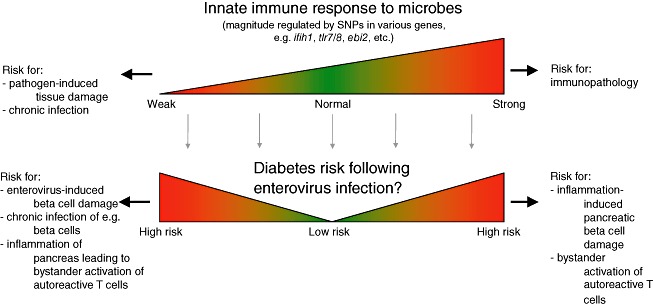Fig. 1.

An imbalanced innate immune response may have adverse consequences for the outcome of enterovirus infections and thereby contribute to Type 1 diabetes (T1D) development. During an acute viral infection, the innate immune system plays an important role by limiting early viral replication and spread, thereby allowing the host to mount an adaptive immune response. Although a strong innate immune response may be efficient in limiting viral dissemination and damage, it may also contribute to unwanted tissue damage. A weak response may favour viral replication and spread and thereby also tissue damage. Numerous gene loci associated with risk for T1D development contain gene candidates involved in the innate immune response. While it remains unclear how these different gene versions are involved in the disease process, some are likely to affect the response to an enterovirus infection.
